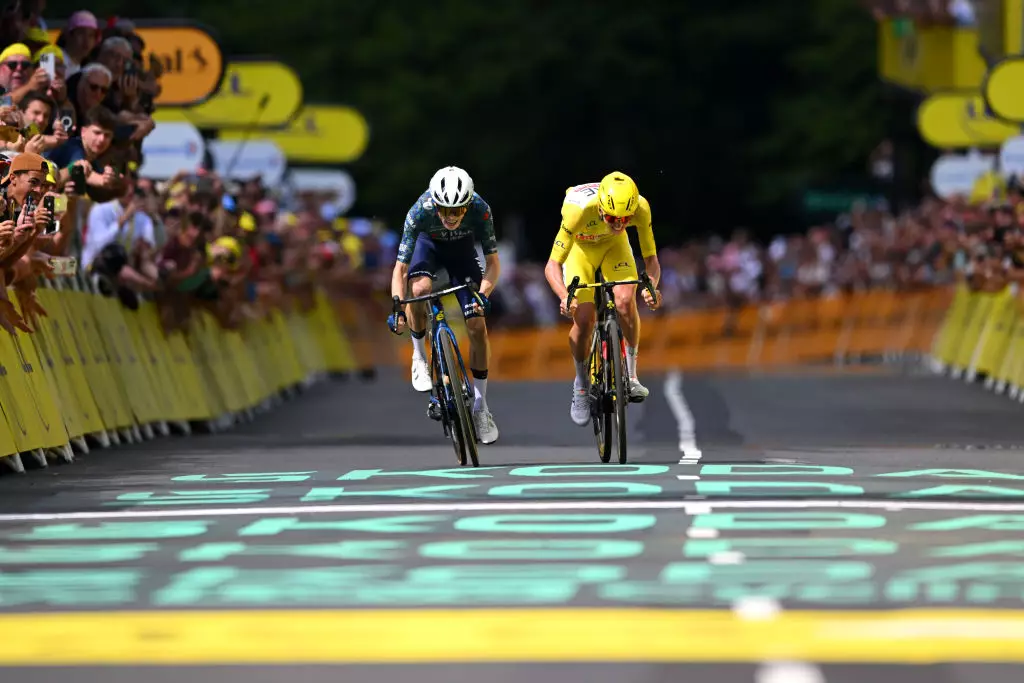The recent shift in broadcasting rights for the Tour de France has left many cycling enthusiasts in the UK distressed and uncertain about the future of free-to-air coverage for this iconic event. With Warner Bros. Discovery (WBD) winning exclusive UK rights—reportedly as the only bidder—the potential ramifications on how fans engage with the sport are tremendous. As the landscape of sports broadcasting continues to evolve, the impact on cycling, a sport that has gained significant popularity in recent years, cannot be overlooked.
Cycling’s ascent in the UK has been remarkable, buoyed by notable successes at the Olympics and a trio of British triumphs at the Tour de France by celebrated riders such as Bradley Wiggins, Chris Froome, and Geraint Thomas. The sport has blossomed into a mainstream phenomenon, a transformation aided in no small part by the substantial funding and visibility provided by professional teams like Ineos—formerly Team Sky. The roster of riders includes luminaries such as Tom Pidcock, whose achievements have certainly added to the sport’s allure. This backdrop suggests that the decision by WBD and its implications on broadcasting could not come at a more critical juncture for cycling.
The acquisition of the Tour de France broadcasting rights by Warner Bros. Discovery raises significant questions about the accessibility of cycling to the general public. ITV has been a long-standing partner in airing the event, and its withdrawal from bidding on the rights has sent ripples of concern among fans. With rumors that no free-to-air broadcaster pursued the rights, the fear that audiences will be pushed towards a subscription model looms large. Without various avenues for engagement, the question arises: will this make the sport less accessible, especially to younger audiences who could potentially be priced out of viewing the race?
The potential move by WBD to utilize one of its free channels for highlights offers a glimmer of hope and a possible compromise. However, the details remain vague, and fans are left wondering just how extensive this coverage might be. Will the highlights be sufficient to maintain interest in a sport that thrives on live action? The value of experiencing the Tour in real time is immeasurable, and much of cycling’s drama lies in the intricacies of each stage—in particular, when strategies unfold and rivalries heat up.
ITV’s silence on the decision to step back from the cycling rights is telling. The broadcaster has opted to concentrate its efforts on more commercially lucrative properties, such as the rights to England’s football matches. This strategic pivot raises questions about the long-term vision for ITV’s sports coverage and whether cycling will find a new home among flagship sports like soccer. For cycling fans, this prioritization feels like a diminishing of the sport’s profile within mainstream British broadcasting.
While WBD has a sturdy legacy in sports coverage—particularly through its Eurosport platform—the question of viewer engagement remains. With Eurosport’s commitment to year-round cycling coverage and extensive coverage of events like the Giro d’Italia, the challenge lies in how to attract viewers during the months without marquee events. Cycling enthusiasts may find comfort in living vicariously through these broadcasts, but a singular focus on major tournaments could detract from the sport’s richness and diversity.
Looking ahead, the cycling community must grapple with this turning point in broadcasting rights. The significance of a free-to-air option cannot be overstated, especially in a country where cycling has captured the imagination of both seasoned fans and newcomers alike. The anticipated changes in 2026—notably the last year ITV will broadcast prior to the new rights deal—will undoubtedly shape how audiences interact with the sport moving forward.
The changing landscape of the Tour de France’s broadcasting in the UK signals a pivotal moment for both cycling and its fanbase. As the sport grows, so must the avenues for fans to engage with it. While WBD’s acquisition may offer new opportunities, it remains vital for stakeholders to ensure that the love for cycling continues to thrive across all demographics, preserving its accessibility and appeal for years to come.


Leave a Reply